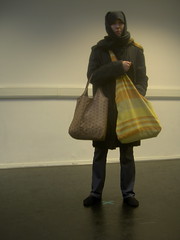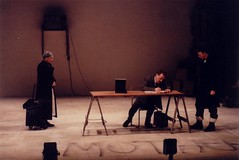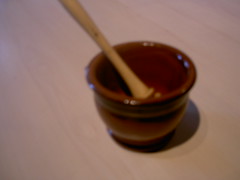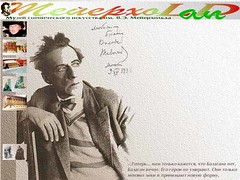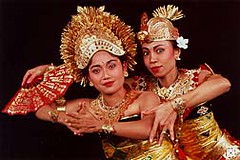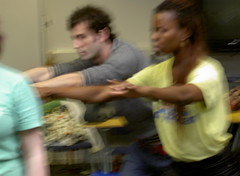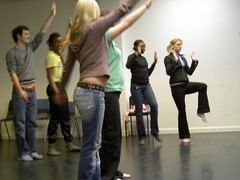Mother Scene 3. Fourth Thursday. Class 11.
DETAIL, DETAIL AND MORE DETAIL
We congratulate our ten-out-of-tenners in the attendance stakes by asking them to stand and then giving them a sustained and genuine round of applause.
Sadly, neither Josie or Claire, who should have been here to bask in that glory, are here.
The students are urged to read Newspapers! Brecht would have approved of us reading about the world. The Independent and, less enthusiastically, The Guardian are plugged.
Joleen reprimands her teacher for not doing the class on newspapers yet. She is told that her teacher has been sidetracked and that she must continue to remind him.
We talk, briefly about The World Turned Upside Down, a map of the world publlished by the New Internationalist Magazine with the North Pole at the bottom, the South Pole at the top and everything else in between likewise not as we usually expect them. We talk about this, Brechtianistically. (New Word. Why not?)
Our warm-up today is a version of Musical Chairs with some slightly different rules: all the contestants have to sing Rose, Rose, Rose, Rose (or Twinkle Twinkle Little Star if they don't know that one) together, then all stop together and only then can they sit down. Anyone who sits down before the singing stops is eliminated. Otherwise you're eliminated in the usual way. And another chair is subtracted.
We have a group practise of being Pelagea Vlassova in a circle refining our reading over the top of our books technique. 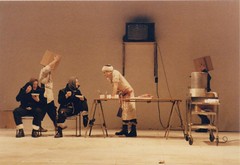
Steve, Linus Roache and Jim Hooper. Contact Theatre Manchester production. Director Di Trevis. Designer Bunny Christie.
While this is going on, the Gatekeepers position is set up. Table, chair and a broom over another chair that acts as the barrier into the Factory.
Practise over, the group sits down and now dons its group director's hat. A volunteer is asked from the group to be the Gatekeeper. A volunteer is asked for Pelagea. The Gatekeeper sits. But instead of starting, a third volunteer is asked to X-mark the spot on the floor for The Mother.
We are concerning ourselves less with the acting than the 'Stage Picture' from the Director's point of view. What story does it tell? Does it tell the story we want it to tell? Is there a better way to tell the story?
We talked about distance. How the picture often looks more interesting with distance. How by giving the Gatekeeper a lot of space round his area, we establish his area more strongly. It's the area - the minefield - that Pelagea will have to move into.
If she's already in it when the scene starts, perhaps we don't see how far her journey is.
How, if she is too near us, the audience, at the beginning of the scene, she and we feel uncomfortable. Do we, the directors, want the audience to feel uncomfortable at this precise point in time?
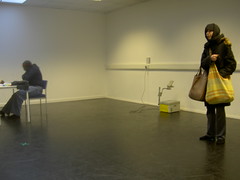
Using the Space. Here we've moved the actors much further apart. Jason as the Gatekeeper is good casting
How, if she stands near the back - and quite far distant from him - when she speaks about the Gatekeeper, we look at him. When she wonders whether he's the fat or the pernickety type, we actually look at him to see.
All this is remarked upon.
We also reflect upon Artificiality. About Soaps. How in a Soap you go: 'Oh look, that's like the wallpaper in our kitchen!' or 'That woman in The Vic's just like my Nan!' or 'No, one would ever act like that' (as a criticism of the writing or the acting, or both).
It's like saying that there is one 'True' world against which Eastenders is being measured. An unchanging world. An agreed-upon-world.
Politically and ideologically, that is a very conservative world. It's a world that can't be 'Turned Upside Down'. Its an unchanging world - and an unchangeable one.
One that Brecht was not interested in.
Soaps are there to be repetitious. To tell us that there's nothing we can do to move forward. Everybody is stuck in their own little world, their own little life, their own little Albert Square. To keep you in your place.
Whereas our world glories is it's artificiality. When you see the world we've created on stage, it doesn't look like anywhere you've seen in the 'real' world.
Our Vlassova's put on the teacher's coat and a scarf for a headscarf. Egle, the Lithuanian, ties a very genuine-looking Babushka's (Russian Granny's) scarf. Egle is definitely the Queen of that particular skill.
We look at props. We look very closely at props.
We ask for four bags to be brought out and put on the floor. Which would we (the director, with the actor, too) choose?
We choose the best from those available. The second group insist on The Mother having two bags.
We look at how to carry the bags. We look at how the mother should stand. Hands across her body? Should she hold that shopping bag in the crook of her arm, or hanging down?
Everything tells a story.
We look at how the gherkin should appear when we first see it - how it should be wrapped. We look at how to take the gherkin out of the bag. How to drop the gherking. And where to drop the gherkin. (How many paces The Mother needs to take towards the Gatekeeper...)
Detail. A few lines takes an hour. And still we are not done.
Detail.
Detail.
We congratulate our ten-out-of-tenners in the attendance stakes by asking them to stand and then giving them a sustained and genuine round of applause.
Sadly, neither Josie or Claire, who should have been here to bask in that glory, are here.
The students are urged to read Newspapers! Brecht would have approved of us reading about the world. The Independent and, less enthusiastically, The Guardian are plugged.
Joleen reprimands her teacher for not doing the class on newspapers yet. She is told that her teacher has been sidetracked and that she must continue to remind him.
We talk, briefly about The World Turned Upside Down, a map of the world publlished by the New Internationalist Magazine with the North Pole at the bottom, the South Pole at the top and everything else in between likewise not as we usually expect them. We talk about this, Brechtianistically. (New Word. Why not?)
Our warm-up today is a version of Musical Chairs with some slightly different rules: all the contestants have to sing Rose, Rose, Rose, Rose (or Twinkle Twinkle Little Star if they don't know that one) together, then all stop together and only then can they sit down. Anyone who sits down before the singing stops is eliminated. Otherwise you're eliminated in the usual way. And another chair is subtracted.
We have a group practise of being Pelagea Vlassova in a circle refining our reading over the top of our books technique.

Steve, Linus Roache and Jim Hooper. Contact Theatre Manchester production. Director Di Trevis. Designer Bunny Christie.
While this is going on, the Gatekeepers position is set up. Table, chair and a broom over another chair that acts as the barrier into the Factory.
Practise over, the group sits down and now dons its group director's hat. A volunteer is asked from the group to be the Gatekeeper. A volunteer is asked for Pelagea. The Gatekeeper sits. But instead of starting, a third volunteer is asked to X-mark the spot on the floor for The Mother.
We are concerning ourselves less with the acting than the 'Stage Picture' from the Director's point of view. What story does it tell? Does it tell the story we want it to tell? Is there a better way to tell the story?
We talked about distance. How the picture often looks more interesting with distance. How by giving the Gatekeeper a lot of space round his area, we establish his area more strongly. It's the area - the minefield - that Pelagea will have to move into.
If she's already in it when the scene starts, perhaps we don't see how far her journey is.
How, if she is too near us, the audience, at the beginning of the scene, she and we feel uncomfortable. Do we, the directors, want the audience to feel uncomfortable at this precise point in time?

Using the Space. Here we've moved the actors much further apart. Jason as the Gatekeeper is good casting
How, if she stands near the back - and quite far distant from him - when she speaks about the Gatekeeper, we look at him. When she wonders whether he's the fat or the pernickety type, we actually look at him to see.
All this is remarked upon.
We also reflect upon Artificiality. About Soaps. How in a Soap you go: 'Oh look, that's like the wallpaper in our kitchen!' or 'That woman in The Vic's just like my Nan!' or 'No, one would ever act like that' (as a criticism of the writing or the acting, or both).
It's like saying that there is one 'True' world against which Eastenders is being measured. An unchanging world. An agreed-upon-world.
Politically and ideologically, that is a very conservative world. It's a world that can't be 'Turned Upside Down'. Its an unchanging world - and an unchangeable one.
One that Brecht was not interested in.
Soaps are there to be repetitious. To tell us that there's nothing we can do to move forward. Everybody is stuck in their own little world, their own little life, their own little Albert Square. To keep you in your place.
Whereas our world glories is it's artificiality. When you see the world we've created on stage, it doesn't look like anywhere you've seen in the 'real' world.
Our Vlassova's put on the teacher's coat and a scarf for a headscarf. Egle, the Lithuanian, ties a very genuine-looking Babushka's (Russian Granny's) scarf. Egle is definitely the Queen of that particular skill.
We look at props. We look very closely at props.
We ask for four bags to be brought out and put on the floor. Which would we (the director, with the actor, too) choose?
We choose the best from those available. The second group insist on The Mother having two bags.
We look at how to carry the bags. We look at how the mother should stand. Hands across her body? Should she hold that shopping bag in the crook of her arm, or hanging down?
Everything tells a story.
We look at how the gherkin should appear when we first see it - how it should be wrapped. We look at how to take the gherkin out of the bag. How to drop the gherking. And where to drop the gherkin. (How many paces The Mother needs to take towards the Gatekeeper...)
Detail. A few lines takes an hour. And still we are not done.
Detail.
Detail.
